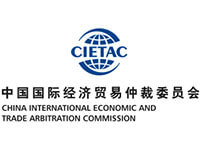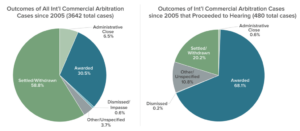A Singapore local court recently prevented the enforcement of an arbitration award rendered in favour what was determined to be a non-existent company, underlining the importance of the continuity of legal persons in international arbitration.[1] The application before the Singapore local court involved National Oilwell Varco Norway AS (formerly known as Hydralift AS) as the […]
News
Demurrage Claims in International Arbitration
International arbitrations in the field of shipping and sales often include demurrage claims (“surestaries” in French) which constitute, using the expression of Professor Debattista, “the staple diet of shipping lawyers the world over”.[1] Although it is rarely defined in charterparties or sale contracts which usually provide for its rate only, the Baltic Code (2020) defines […]
Aceris Law Secures USD 28.7 Million Final Award in LCIA Arbitration under English Law
Aceris Law is pleased to announce that it has secured another highly favorable outcome for another client, with its client obtaining USD 28.7 million in damages, plus interest, for an Asian entity’s breach of a commodity supply agreement. In the dispute, which was subject to LCIA arbitration under English law, Aceris’ client was also awarded […]
HKIAC Arbitration
HKIAC arbitration refers to the settlement of disputes administered by the Hong Kong International Arbitration Centre (the “HKIAC”) under one of its arbitration rules. According to the Queen Mary, University of London and White and Case’s 2015 International Arbitration Survey, HKIAC was the third most preferred and used arbitral institution worldwide and the most favored […]
Revised 2021 Swiss Arbitration Rules
The newly-revised 2021 Swiss Rules of International Arbitration (“2021 Swiss Rules”) took effect on 1 June 2021 and apply to all arbitrations commencing on or after that date, superseding the 2012 version previously in force, unless the parties otherwise agree. Originally enacted on 1 January 2004, and having undergone only one revision in 2012, the […]
Mining Arbitrations
Mining-related arbitrations have significantly increased over recent decades. Metals and minerals play an important role in foreign direct investments and the need for complex contracts have attracted considerable attention of arbitration practitioners and users. The mining sector is complex. It frequently involves multiple parties and different jurisdictions. Additionally, social development in emerging economies and environmental […]
Aceris Law Successfully Resolves Another ICC Construction Arbitration
Aceris Law LLC is pleased to announce that it has successfully resolved another ICC arbitration for another well-deserving client, shortly after securing a USD 34.5 million arbitration award for a different client. The arbitration, which had it seat in London, was governed by the laws of Saudi Arabia and concerned construction works related to a […]
The CIETAC Arbitration Rules, Organization and Key Developments
The China International Economic and Trade Arbitration Commission (the “CIETAC”) is the main permanent arbitration institution in Mainland China, but also one of the oldest and busiest arbitration institutions in the world. The CIETAC was established in April 1956. Originally named the Foreign Trade Arbitration Commission of the China Council for the Promotion of International […]
Settlement and ICC Arbitration
Contrary to what is often believed, most international arbitration cases are resolved through direct settlement between the Parties, or are withdrawn, with relatively few proceeding to a final oral hearing. According to Dispute Resolution Data, which analyzed 3,642 international commercial arbitration cases since 2005, 58.8% of international commercial arbitration cases that were initiated were either […]







